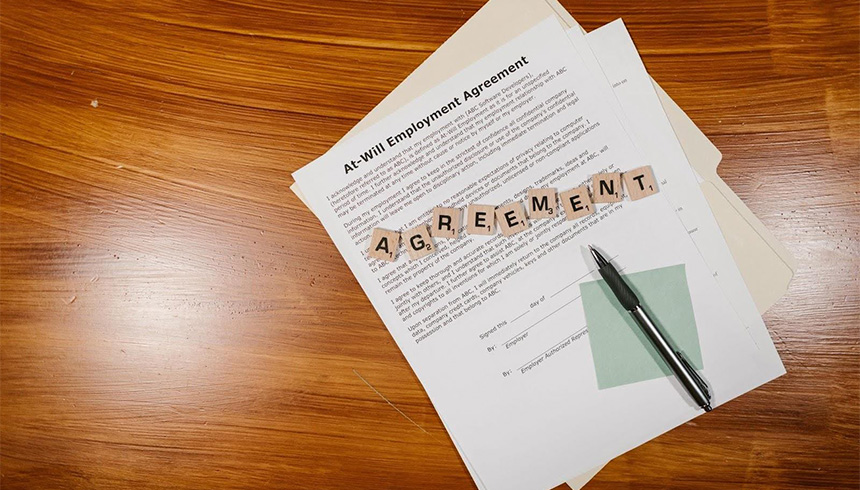Fuel the Fire, Don't Burn the Bridge: Building a High-Performance Culture That Lasts
A "high-performance culture" is not about squeezing every last d.....
Continue ReadingIn 2025, culture, sense of belonging and connection are outperforming monetary aspects as the real deal-breakers for top talent. In today’s job market, top talent isn&rsqu.....
Continue ReadingAs 2025 comes to a close, businesses are reviewing HR practices and preparing for 2026. Employee classification remains a critical compliance area. Missteps can resu.....
Continue ReadingEmployee well-being has always been a priority for forward-thinking organizations, but in 2025, it&rsquo.....
Continue ReadingAn employee handbook isn’t just a bunch of rules—it’s your company’s playbook. It sets expectations, helps new hires get their bearings, and gives everyo.....
Continue ReadingHiring the right person isn’t just about filling a seat. It’s about finding someone who fits the role, the team, and your company’s long-term goals. Unfortunat.....
Continue ReadingIf the past few years have taught us anything, it’s that “business as usual” can change in an inst.....
Continue ReadingEmployee handbooks should be helpful, not intimidating. But too often, companies pack them full of outdated rules, legal jargon, or overly strict policies that just don’t .....
Continue ReadingCommunication makes or breaks the employee experience. We often hear about what companies think they’re doing right—open-door policies, team meetings, surveys—.....
Continue ReadingAs we step into 2025, the workplace continues to evolve in response to technological advancements, shifting employee expectations, and global events. For organizations aiming to.....
Continue ReadingA sense of belonging is a fundamental human need, just like the need for food and water. When that need is not met, people can become lonely, depressed, an.....
Continue ReadingEmployee retention is crucial for a company's success. High turnover rates can disrupt workflow, incur significant costs, and negatively impact team morale.
..... Continue ReadingThe importance of compliance in the business world cannot be overstated. With the increasing emphasis on corporate responsibility and ethical practices, companies are .....
Continue ReadingAs a business owner, navigating the complexities of human resources management can be daunting. One critical decision you may face is choosing between a Professional E.....
Continue ReadingArtificial Intelligence has become a hot topic in the business world. While some see it as the key to future success, others are hesitant to adopt it. If you’re .....
Continue ReadingDo you find yourself constantly dealing with employee issues, payroll, and benefits administration?
Are you wondering if it's time to hire a fu.....
Continue ReadingTransitioning from a corporate job to a consulting role is a significant career move. It requires careful planning and preparation to ensure a smooth and successful tr.....
Continue ReadingAs a small business owner, you may have found yourself in a situation where you don't have any HR policies in place. This can be a daunting task, especially if you don.....
Continue ReadingIn thе world of еducation, it is еssеntial to have a positive mindset to achiеvе succеss in any field. Positivе psychology tеchniquеs can makе lеarnеrs f�.....
Continue ReadingThe corporate world can be a comfortable place. Steady paychecks, clear hierarchies, and predictable routines are part of the package.
But what if yo.....
Continue ReadingHave you ever heard of "ghost jobs"?
In today’s competitive job market, some recruiters use this peculiar tactic to snag top talent. Ghos.....
Continue ReadingGeneration Z, also known as Gen Z, is the demographic cohort following the Millennials. Born between the mid-1990s and the early 2010s, this generation is now entering.....
Continue ReadingIf you're someone in charge of a team of people, you know that it can be a tough job. There are many things you need to do, like finding new people to join your team, helping th.....
Continue ReadingIn today's uncertain economic climate, many companies are faced with tough decisions regarding their workforce. If you’ve recently found yourself facing terms li.....
Continue ReadingArtificial Intelligence is no longer a distant future; it’s very much embedded in our daily lives and, more importantly, in the workplace. As businesses increasingly adopt.....
Continue ReadingAs a small business owner, you may have found yourself in a situation where you don't have any HR policies in place. This can be a daunting task, especially if you don't know wh.....
Continue ReadingAs an HR leader, you know that having a well-crafted employee handbook is essential for any organization. But do you know why? In this blog post, we'll explore the importance of.....
Continue ReadingArtificial intelligence has been making waves in various industries, and the field of human resources is no exception. With the rise of AI technology, many are wondering if it w.....
Continue ReadingMental health is a crucial aspect of overall well-being, and it is essential to prioritize it in your life, including the workplace. With the increasing work pressure, it's not .....
Continue ReadingAs a small business owner, you may be wondering if you really need to invest in HR (human resources). After all, you have a small team and you handle most of the business operat.....
Continue ReadingWhen it comes to managing human resources, businesses have two main options: hiring an in-house HR team or using fractional HR services. Both options have their own benefits and.....
Continue ReadingEmployee offboarding is often overlooked in the grand scheme of things. Companies tend to focus more on the onboarding process, ensuring that new employees are welcomed and inte.....
Continue ReadingHuman resources is an essential function for any organization, but managing it can be a time-consuming and complex task. As a business owner or manager, you may find yourself st.....
Continue ReadingIn the world of education, it is essential to have a positive mindset to achieve success in any field. Positive psychology techniques can make learners feel better and more moti.....
Continue ReadingSetting up an HR department from scratch can be a difficult task. Of course! With so many moving parts and important decisions to make, it can be overwhelming for any organizati.....
Continue ReadingIn today's fast-paced world, small and medium-sized businesses (SMBs) must keep up with the latest developments by recognizing and tackling the most important HR issues that wil.....
Continue ReadingAs a business owner or HR professional, the term 'HR audit' may sound intimidating. However, it is an essential process that can help your organization stay compliant, mitigate .....
Continue ReadingGeneration Z, also known as Gen Z, is the demographic cohort following the Millennials. Born between the mid-1990s and the early 2010s, this generation is now entering the workf.....
Continue ReadingWorkplace culture is the personality of a company. It encompasses the values, beliefs, attitudes, and behaviors that shape the work environment. It is the heartbeat of the offic.....
Continue ReadingAs we move towards 2024, the importance of HR for businesses cannot be overstated. HR departments play a vital role in any organization, and their support is essential for the s.....
Continue ReadingArtificial intelligence (AI) has been making waves in various industries, and HR consulting is no exception. With the rise of technology, the role of HR consultants is evolving,.....
Continue ReadingAs a manager, it can be frustrating when you have employees who are not meeting their goals or performing at their best. You may feel like you've tried everything to motivate th.....
Continue ReadingWelcome, fellow business adventurers! Today, we embark on an exciting journey to discover the hidden gems of an outstanding onboarding program. If you find yourself navigating u.....
Continue ReadingIn the world of work, it's essential to be aware of the rules that govern employment. One important concept that often comes up is “at will employment.” Well, in the.....
Continue ReadingOne really helpful tool is called a people management platform. It's a type of computer program that helps businesses manage their employees better. It has lots of different fea.....
Continue ReadingDifficult conversations with employees are inevitable in any workplace. Whether it's addressing performance issues, or discussing sensitive topics, these conversations can be ch.....
Continue ReadingIn the realm of employment, some terms are often confused. 'Exempt' and 'nonexempt,' 'salaried' and 'hourly' are among them. Understanding these classifications is essential for.....
Continue ReadingWith Trello, teamwork is a breeze with its flexible project management features. Users may organize their tasks and projects on boards and add adjustable cards. Cards can includ.....
Continue ReadingWith Gusto, you can say goodbye to time-consuming manual calculations and paperwork, and hello to a simple and efficient HR and payroll system. Join Tru Art HR on this journey t.....
Continue ReadingWelcome, fellow business adventurers! Today, we embark on an exciting journey to discover the hidden gems of an outstanding onboarding program. If you find yourself navigating u.....
Continue ReadingIn today's fast-paced business world, productivity is the key to success. Effectively managing projects, optimizing time, and staying organized are paramount. Are you ready to u.....
Continue Reading






















.jpg)


























